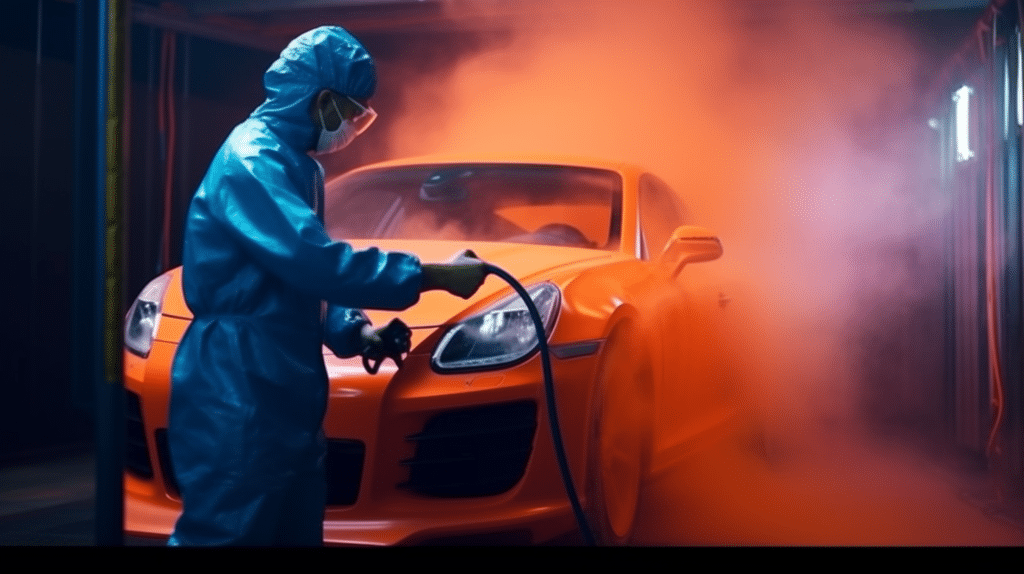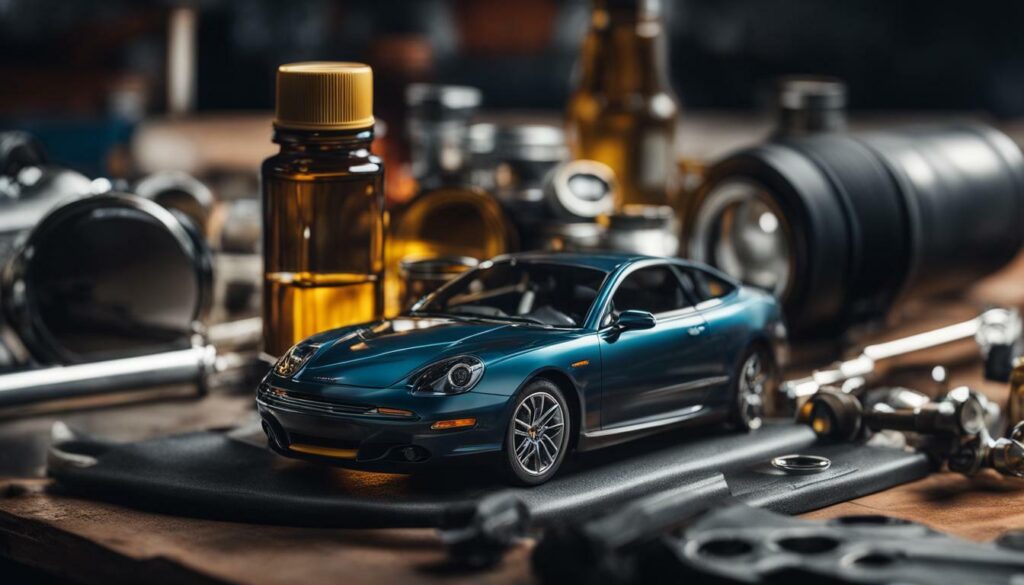As a driver, it’s crucial to be aware of the potential differential problems that can occur in cars. The differential is an essential component of the drivetrain responsible for distributing power to the wheels. When there is a fault or issue with the differential, it can lead to significant performance and handling problems.
Recognizing the signs of a faulty differential is key to addressing the problem promptly and preventing further damage. Some common indicators include difficulty in handling the vehicle, grinding gears, banging, clanging, rattling, and whining sounds, as well as burning smells. Ignoring these signs may result in more severe issues and costly repairs in the long run.
Troubleshooting differential problems requires expertise and careful analysis. It is recommended to consult with a qualified mechanic who can accurately diagnose the issue and suggest the appropriate solutions. Investing in a high-quality differential and having it installed correctly by a professional can also help prevent future problems.
Key Takeaways:
- Signs of a faulty differential include difficulty in handling, grinding gears, banging, clanging, rattling, and whining sounds, and burning smells.
- Promptly addressing differential issues can prevent further damage and costly repairs.
- Consulting with a qualified mechanic is crucial for accurate diagnosis and appropriate solutions.
- Investing in a high-quality differential and professional installation can help prevent future problems.
- Regular maintenance and care are essential for maintaining a healthy differential and ensuring optimal vehicle performance.
Common Signs of Differential Trouble
When it comes to the differential in your car, there are a few common signs that may indicate a faulty differential. Recognizing these signs early on can help you diagnose and address any potential problems, preventing further damage to your vehicle. Let’s take a closer look at some of the most prominent differential problem symptoms:
- Whining or Whirring Noises: You may notice unusual whining or whirring noises coming from your vehicle, especially when accelerating, slowing down, or navigating a corner. These noises can be a clear indicator of a faulty differential.
- Overheating: Excessive heat around the differential area is another sign to watch out for. Overheating can be caused by a lack of lubrication or other internal issues, and it can lead to severe damage if not addressed promptly.
- Vibration: If you experience vibration that intensifies with acceleration or encounter a rough ride, it could be a sign of differential trouble. Issues with the differential can cause instability and affect the overall performance of your vehicle.
- Handling or Steering Problems: Problems with the differential can result in difficulty handling your vehicle. You may notice problems with steering and a general lack of control while driving.
- Gear Grinding Sounds: If you hear grinding sounds when shifting gears, it could be an indication of a faulty differential. These sounds are typically caused by worn-out gears or improper lubrication.
- Tire Damage: Uneven tire wear can also be a sign of a faulty differential. The differential helps distribute power evenly to the tires, and any issues with it can lead to uneven wear and tear.
- Oil Leaks: A leaking differential is a serious problem that should not be ignored. If you notice puddles of oil underneath your vehicle or detect a strong burnt smell, it’s essential to address the issue promptly.
- Out-of-Balance Driveshaft: An out-of-balance driveshaft can cause vibrations and put additional strain on the differential. This can lead to premature wear and ultimately affect the overall performance of your vehicle.
- Burning Smells: Strange burning smells, especially coming from the differential area, could indicate a component failure or excessive friction. It’s crucial to investigate these smells promptly to prevent further damage.
Being aware of these signs of a faulty differential can help you take the necessary steps to diagnose and address any issues. If you notice any of these symptoms, it is recommended to consult with a qualified mechanic who can provide a proper diagnosis and recommend the appropriate solutions. Remember, addressing differential problems early on can save you from extensive damage and costly repairs in the long run.
| Differential Problem Symptom | Description |
|---|---|
| Whining or Whirring Noises | Unusual whining or whirring noises when accelerating, slowing down, or navigating a corner. |
| Overheating | Excessive heat around the differential area due to lack of lubrication or internal issues. |
| Vibration | Vibration that intensifies with acceleration or results in a rough ride. |
| Handling or Steering Problems | Difficulty handling the vehicle and experiencing steering issues. |
| Gear Grinding Sounds | Grinding sounds when shifting gears, caused by worn-out gears or improper lubrication. |
| Tire Damage | Uneven tire wear due to differential issues affecting power distribution to the tires. |
| Oil Leaks | Puddles of oil underneath the vehicle or strong burnt smells around the differential area. |
| Out-of-Balance Driveshaft | An out-of-balance driveshaft causing vibrations and additional strain on the differential. |
| Burning Smells | Strange burning smells, especially from the differential area, indicating component failure or excessive friction. |
Causes and Solutions for Differential Problems
Differential problems in cars can arise due to a variety of factors. By understanding the common causes, you can take appropriate measures to prevent and repair these issues.
Causes of Differential Problems
1. Lack of Oil: One of the primary causes of differential problems is a low or insufficient amount of oil. Without proper lubrication, the differential gears can wear out quickly and cause significant damage.
2. Using the Wrong Oil Type: Using the incorrect type of oil for your differential can also lead to problems. It is essential to refer to your vehicle manufacturer’s recommendations and use the appropriate oil viscosity and specification to ensure optimal performance.
3. Reckless Driving: Aggressive driving behaviors such as sudden acceleration, excessive braking, and hard cornering can put excessive stress on the differential components. Over time, this can result in accelerated wear and potential damage.
4. Normal Wear and Tear: Like any mechanical component, differentials are subject to normal wear and tear over time. Constant use and mileage can cause parts to wear out, resulting in reduced performance and potential failures.
Solutions for Differential Problems
To maintain a healthy differential and prevent problems, it is crucial to follow these solutions:
- Regular Differential Maintenance: Stay on top of regular maintenance tasks, including changing the differential oil at recommended intervals. This will help ensure proper lubrication and minimize the risk of wear and damage.
- Annual Drivetrain Inspection: Have a qualified mechanic inspect your drivetrain and differential annually. They will check for any signs of wear, leaks, or damage and address them promptly to prevent further issues.
- Replace Worn-out Components: If you experience differential problems, it is crucial to replace any worn-out gaskets, bearings, or seals. These components play a vital role in maintaining proper functionality.
- Consider Differential Repair or Replacement: In some cases, if the differential damage is severe, it may be necessary to replace the entire differential unit. A professional mechanic can assess the extent of the damage and recommend the most suitable solution.
By addressing these causes and implementing the necessary solutions, you can ensure the longevity and reliable performance of your vehicle’s differential.
Conclusion
Car differential issues can have a significant impact on the overall performance and handling of a vehicle. It is crucial for car owners to be familiar with the signs of a faulty differential and take immediate action to diagnose and resolve any issues. By prioritizing regular maintenance and proper care, drivers can prevent long-term differential problems and enjoy a smooth and safe driving experience.
Diagnosing differential issues requires attentiveness to common symptoms such as whining or whirring noises, grinding sounds, overheating, vibrations, and handling problems. It is recommended to consult a qualified mechanic to accurately diagnose the problem and determine the necessary repairs.
Proactive measures, such as adhering to the manufacturer’s recommended oil change schedule and having the drivetrain inspected annually, can help maintain a healthy differential. When repairs are needed, they may involve replacing worn-out gaskets, bearings, seals, or even the entire differential unit, depending on the severity of the issue.
FAQ
What are some signs of differential problems in cars?
Some signs of differential problems in cars include difficulty in handling the vehicle, grinding gears, banging, clanging, rattling, and whining sounds, and burning smells.
What are the common signs of differential trouble?
Common signs of differential trouble include whining or whirring noises, especially when accelerating, slowing down, or navigating a corner. Other symptoms include overheating, vibration that intensifies with acceleration, handling or steering problems, gear grinding sounds, tire damage, oil leaks, out-of-balance driveshaft, and burning smells.
What causes differential problems in cars?
Differential problems can be caused by factors such as lack of oil, using the wrong oil type, reckless driving, and normal wear and tear.
How can differential problems be diagnosed?
Differential problems can be diagnosed by a qualified mechanic who can inspect the differential and drivetrain for any issues. They may also conduct tests and perform necessary repairs.
How can differential problems be repaired?
Repairs for differential issues may include replacing worn-out gaskets, bearings, or seals, and in some cases, replacing the entire differential. It is recommended to have a qualified mechanic handle the repairs.
How can differential problems be prevented?
To prevent differential problems, it is important to regularly change the oil according to the manufacturer’s recommendations and have the drivetrain inspected annually. Investing in a high-quality differential and having a qualified mechanic install it correctly can also help prevent long-term issues.




